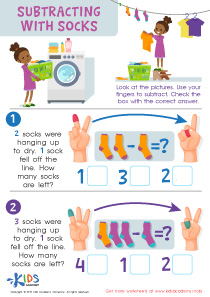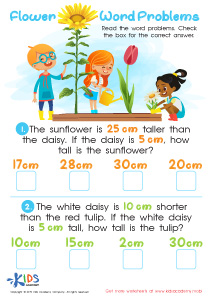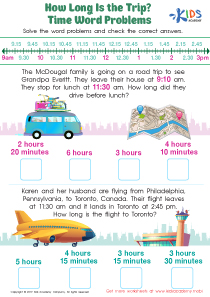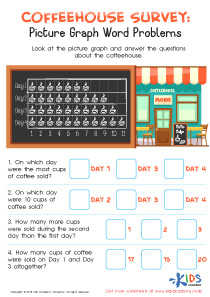Counting skills Easy Addition and Subtraction Word Problems Worksheets for Ages 4-7
6 filtered results
-
From - To
Discover our engaging "Counting Skills: Easy Addition and Subtraction Word Problems Worksheets" designed specifically for children ages 4-7! These worksheets introduce budding mathematicians to vital addition and subtraction concepts through fun, relatable scenarios. Each word problem encourages young learners to visualize and understand math in everyday contexts, enhancing their counting skills while building confidence. With a variety of colorful illustrations and stimulating activities, your child will enjoy practicing essential math skills in an interactive way. Perfect for classroom use or at-home learning, these worksheets are a great resource for fostering early numeracy and promoting a strong foundation in mathematics. Start exploring today!
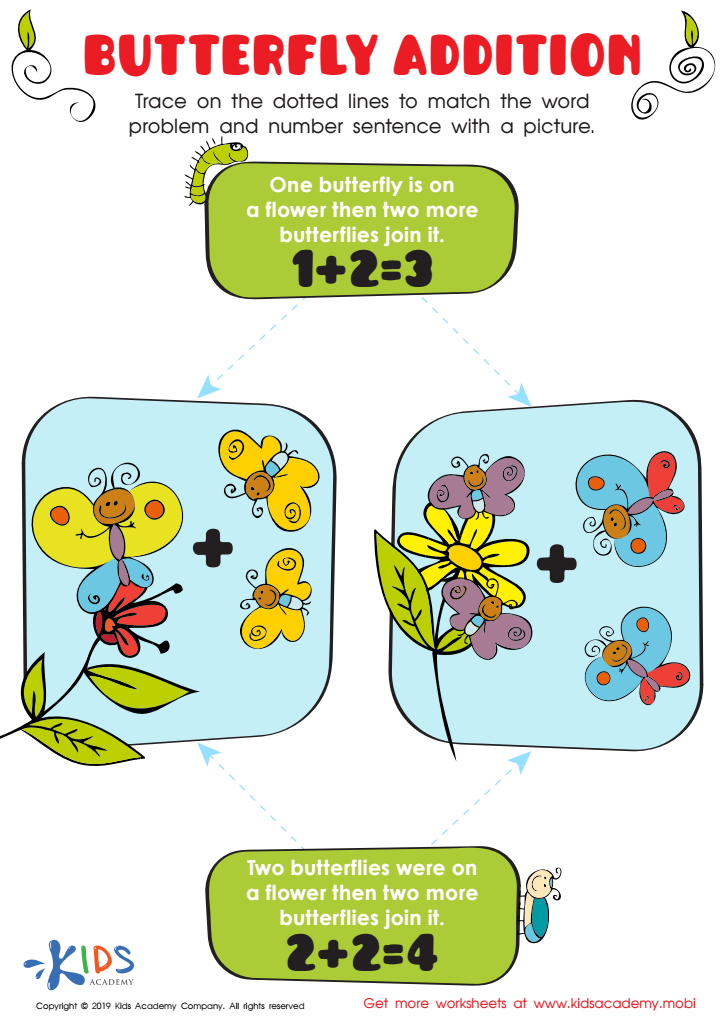

Butterfly Addition Worksheet


Counting Seedlings Worksheet
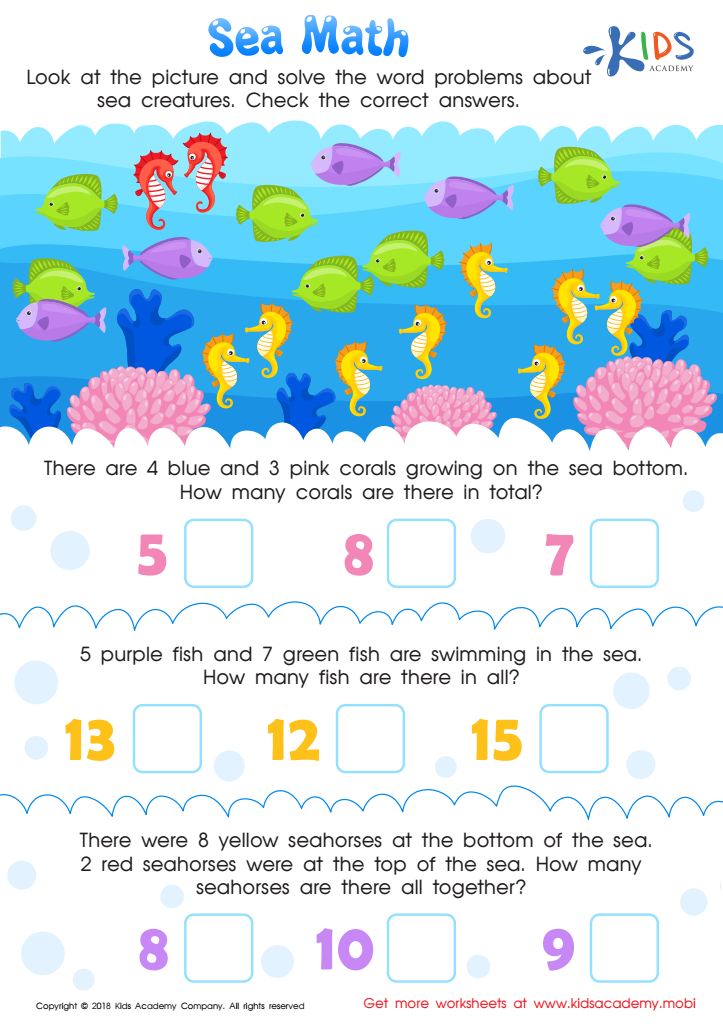

Sea Math Worksheet
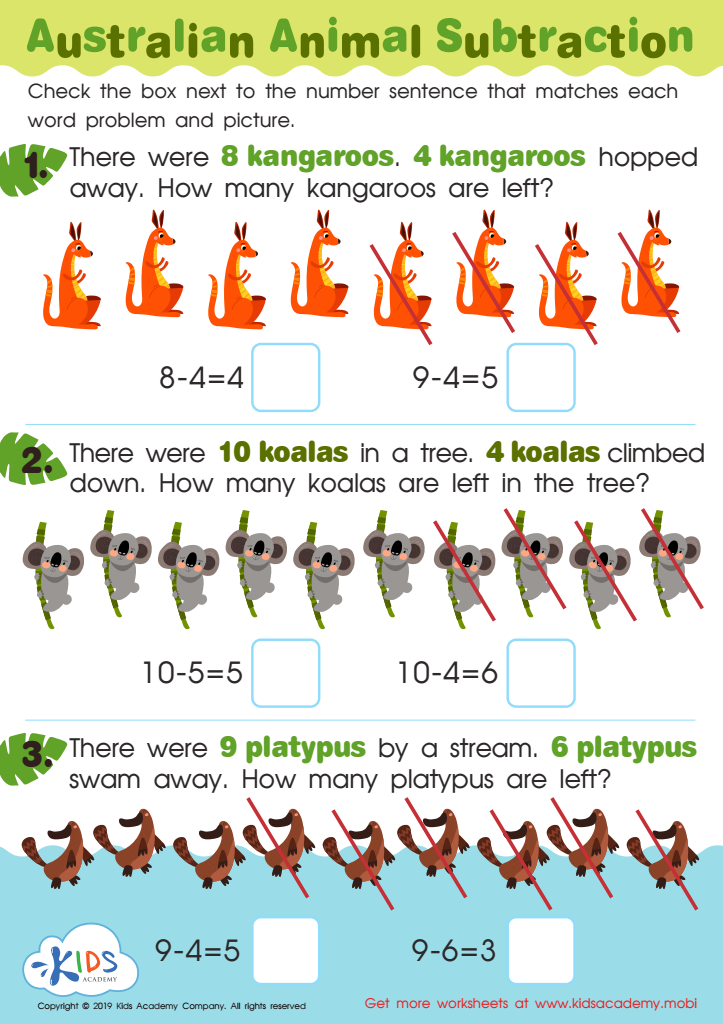

Australian Animal Subtraction Worksheet
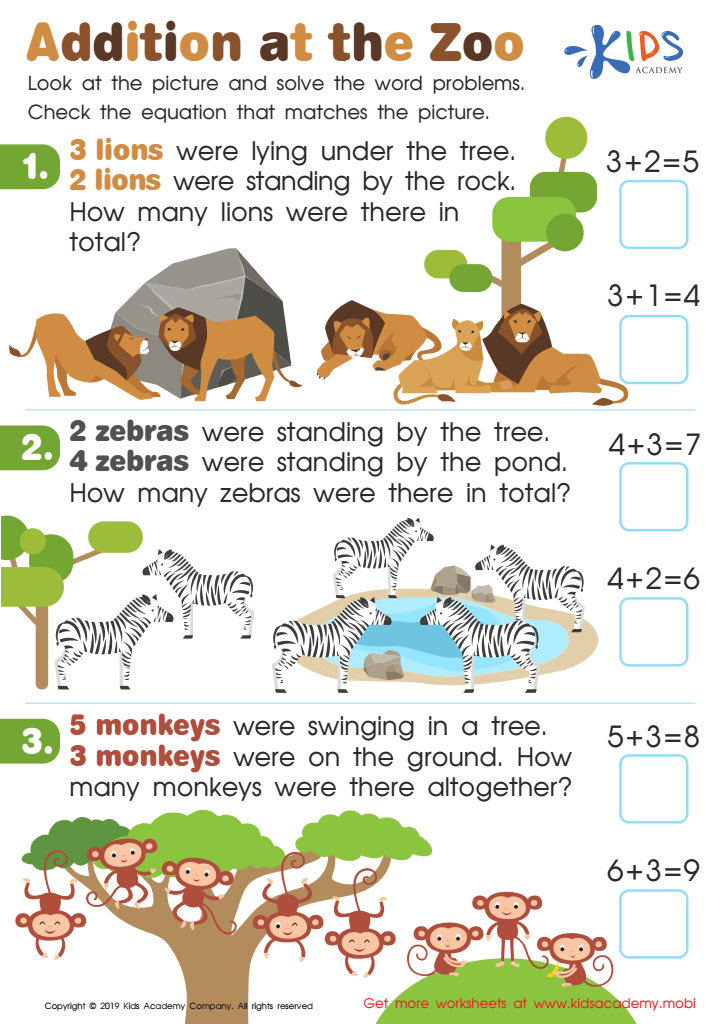

Addition at the Zoo Worksheet
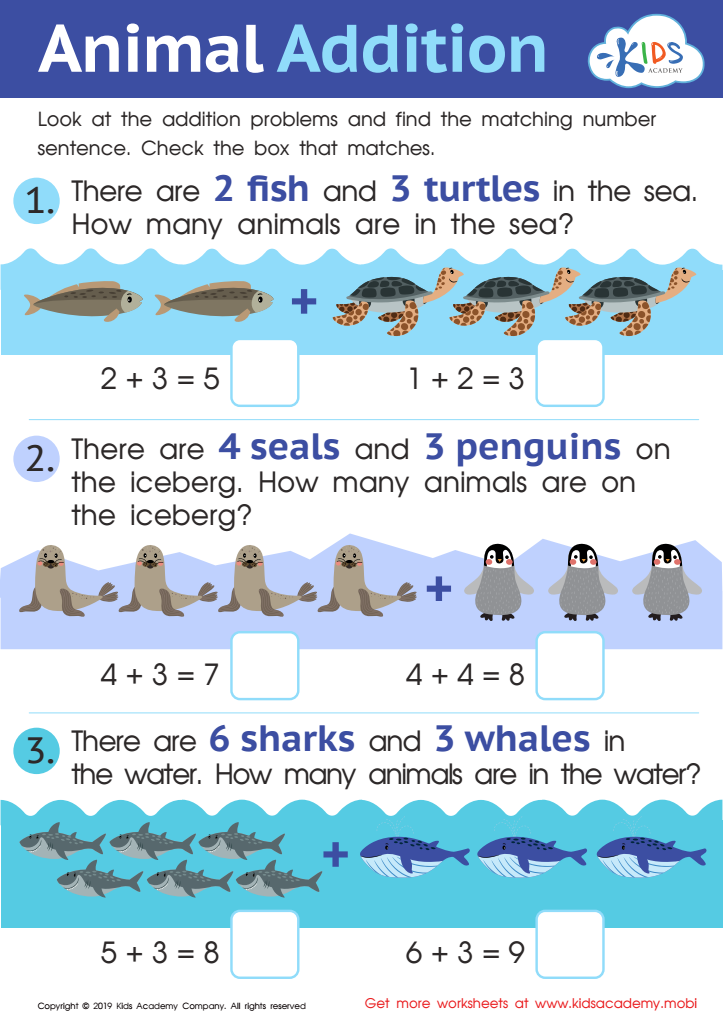

Animal Addition Worksheet
Counting skills and easy addition and subtraction word problems are crucial for early childhood education, particularly for children aged 4-7. This foundational stage of learning sets the groundwork for a child's future success in mathematics and problem-solving. Parents and teachers should prioritize these skills for several reasons.
Firstly, counting and basic operations enhance a child's cognitive development. Understanding numbers and operations lays the groundwork for logical thinking, pattern recognition, and critical reasoning. It also aids in developing numerical fluency, which is vital for higher-level math concepts.
Secondly, word problems contextualize math in real-life situations, making abstract concepts tangible. As children narrate problems, they learn to comprehend and articulate their thoughts, thereby improving both mathematical and language skills.
Moreover, early mastery of counting and simple arithmetic increases confidence. Children are more likely to engage with and enjoy mathematics if they have a solid foundational understanding.
Ultimately, promoting these skills not only supports academic growth, but also fosters a positive attitude toward math, encouraging lifelong learning. Therefore, parents and teachers hold a significant responsibility in nurturing these essential abilities in their young learners.
 Assign to My Students
Assign to My Students








